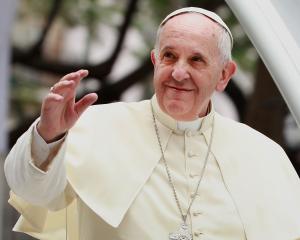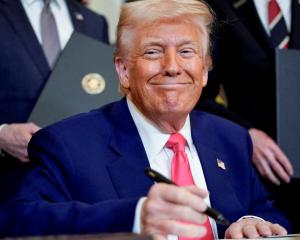Vexed questions about how far a country can go watching its citizens versus their rights to privacy will continue to be debated following the national security announcement yesterday by Prime Minister John Key.
New Zealanders, by and large, understandably feel uncomfortable with the thought of being spied upon and, while perhaps not in the majority, the opponents of greater powers of surveillance for the country's spy agencies and police have had plenty to say of late.
New Zealand does have international obligations with its allies and colleagues on the United Nations Security Council that require Mr Key to make some changes to current law.
At the top of his list of concerns is the rise of the Islamic State of Iraq and the Levant, which the Prime Minister estimates has in its ranks 3000 foreign fighters holding Western passports from a range of countries.
New Zealand government agencies have a watch-list of between 30 and 40 people of concern in the foreign fighter context - people in, or from New Zealand, who are in various ways participating in extremist behaviour, he says.
There are also another 30 or 40 who require further investigation.
In response to the evolving situation, Cabinet has approved some new narrowly-focused powers for security agencies, some of which are a surprise.
There will be an ability for the Minister of Internal Affairs to cancel passports, the New Zealand Security Intelligence Service will be able to carry out video surveillance on private properties, and the SIS will be able to conduct emergency surveillance for up to 48 hours before the issue of a warrant (with the approval of its director and subject to the oversight of the Inspector-general of Intelligence and Security).
This will allow the service to investigate urgent situations while paperwork is prepared for the full warrant process.
The Government has committed an extra $7 million to the SIS to increase the number of staff able to work on investigations.
After the election, Mr Key, the minister responsible for the protection of New Zealanders at home and abroad, announced a review of security settings around foreign fighters.
As part of the review, an assessment was made on whether a new criminal offence could be created to deal with the foreign fighters issue. Officials recommended the issue should be dealt with on a longer time frame rather than the urgent review allowed.
The decision to hold back the creation of a new criminal offence is wise.
In his speech, Mr Key outlined four areas where New Zealand will help with the fight against Islamic State. None of them involve sending SAS or any troops into combat roles in Iraq.
The military, however, may well play a part in building the capability and capacity of the Iraqi forces - something on which New Zealand has a proven track record by doing work in Afghanistan. Humanitarian support will be increased for refugees from Syria and Iraq.
While on the Security Council, the country will also focus its efforts on addressing the longstanding issues in the Middle East which are proving to be a source of radicalisation for some individuals and threats for regional stability.
The Prime Minister is asking a lot from New Zealanders at this time.
He has previously said the opponents of greater surveillance powers by the SIS, and police, do not see what he sees.
That is taken for granted by most, but while no-one should expect New Zealand's highest elected official to reveal any secrets, we do expect a degree of honesty.
The Government did not come out well from revelations of dirty politics released during the election campaign and there will be some scepticism the new powers will be used judiciously.
The concern in the community about being spied upon needs to be recognised as something genuine.
The radicalisation of New Zealanders is not something new and the Urewera raids are testament to how things can quickly become overblown. Therefore, the balance of security and privacy needs to be carefully monitored.












